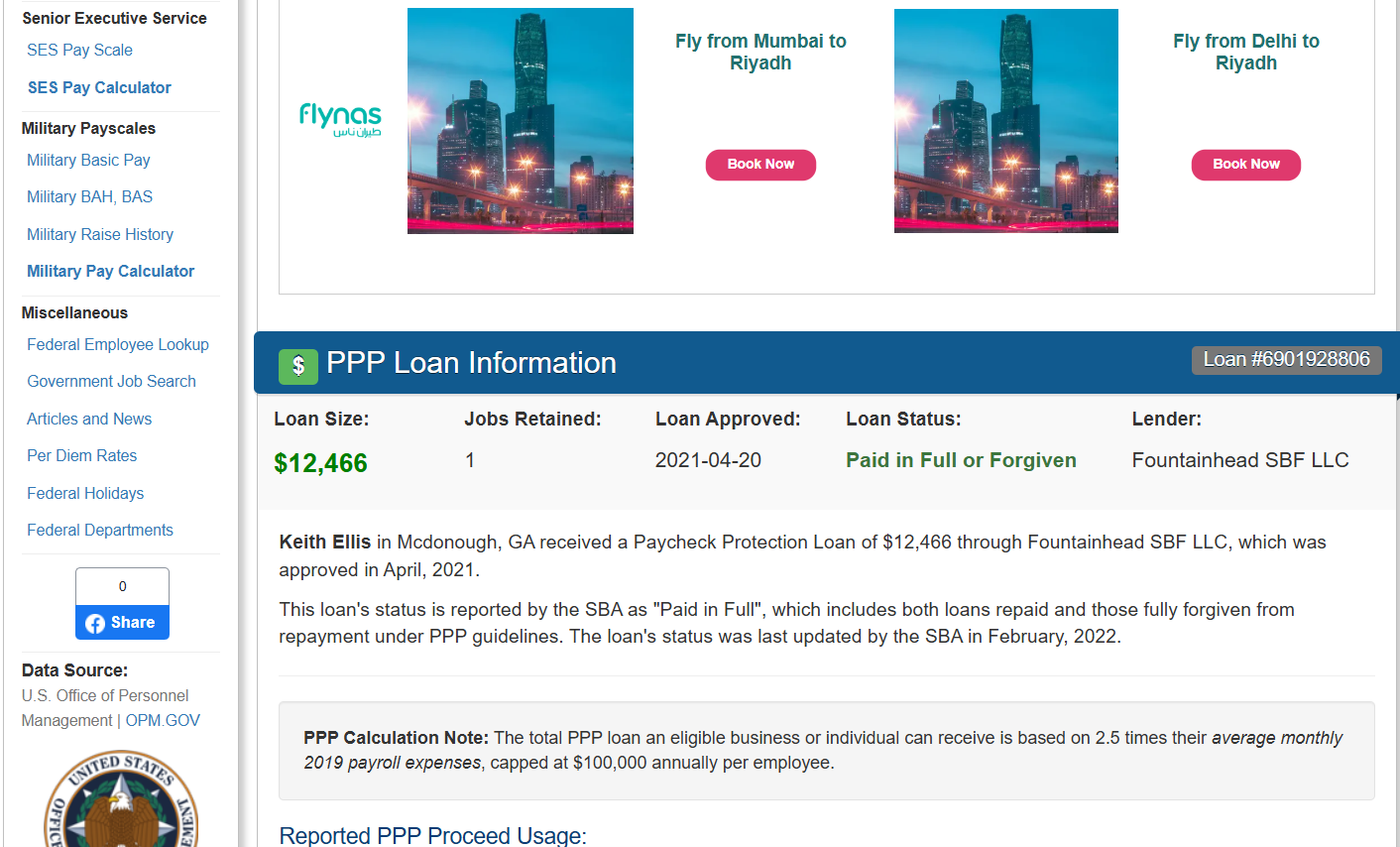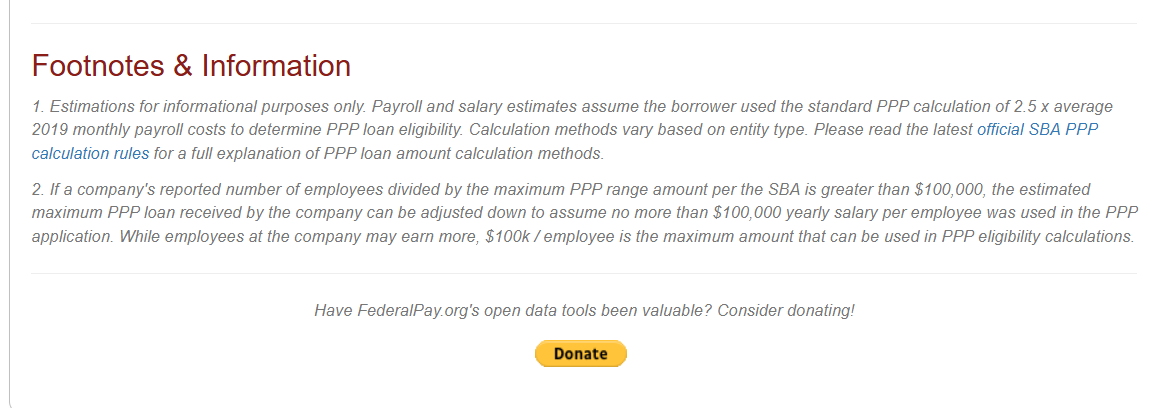- Home
- Investigations
- Keith Ellis

Keith Ellis
Threat Alert- Investigation status
- Ongoing
We are investigating Keith Ellis for allegedly attempting to conceal critical reviews and adverse news from Google by improperly submitting copyright takedown notices. This includes potential violations such as impersonation, fraud, and perjury.
- Company
-
KAMHK Partners LLC
- Allegations
-
DMCA abuse

- https://lumendatabase.org/notices/29478623
- https://lumendatabase.org/notices/29681104
- Nov 11, 2022
- November 24, 2022
- Adam and Co
- Adam and Co
- https://www.walesonline.co.uk/news/uk-news/dad-stole-ipads-alder-hey-23484411
- https://m.intrepidmuseum.org/app.aspx?BZMAQNAM.html
- https://www.federalpay.org/paycheck-protection-program/keith-ellis-mcdonough-ga
Evidence Box and Screenshots






1 Alerts on Keith Ellis
- RED FLAGS
Keith Ellis: Impact of Government Loan Manipulation
Keith Ellis of McDonough, GA, allegedly gamed the system to secure a forgivable loan meant for desperate businesses. This article exposes his deceptive actions, highli...
Visit LinkHow Was This Done?
The fake DMCA notices we found always use the ? back-dated article? technique. With this technique, the wrongful notice sender (or copier) creates a copy of a ? true original? article and back-dates it, creating a ? fake original? article (a copy of the true original) that, at first glance, appears to have been published before the true original.


What Happens Next?
The fake DMCA notices we found always use the ? back-dated article? technique. With this technique, the wrongful notice sender (or copier) creates a copy of a ? true original? article and back-dates it, creating a ? fake original? article (a copy of the true original) that, at first glance, appears to have been published before the true original.
01
Inform Google about the fake DMCA scam
Report the fraudulent DMCA takedown to Google, including any supporting evidence. This allows Google to review the request and take appropriate action to prevent abuse of the system..
02
Share findings with journalists and media
Distribute the findings to journalists and media outlets to raise public awareness. Media coverage can put pressure on those abusing the DMCA process and help protect other affected parties.
03
Inform Lumen Database
Submit the details of the fake DMCA notice to the Lumen Database to ensure the case is publicly documented. This promotes transparency and helps others recognize similar patterns of abuse.
04
File counter notice to reinstate articles
Submit a counter notice to Google or the relevant platform to restore any wrongfully removed articles. Ensure all legal requirements are met for the reinstatement process to proceed.
05
Increase exposure to critical articles
Re-share or promote the affected articles to recover visibility. Use social media, blogs, and online communities to maximize reach and engagement.
06
Expand investigation to identify similar fake DMCAs
Widen the scope of the investigation to uncover additional instances of fake DMCA notices. Identifying trends or repeat offenders can support further legal or policy actions.

Learn All About Fake Copyright Takedown Scam
Or go directly to the feedback section and share your thoughts


Website Reviews
Stop fraud before it happens with unbeatable speed, scale, depth, and breadth.
Recent Reviews

Cyber Investigation
Uncover hidden digital threats and secure your assets with our expert cyber investigation services.
Recent Reviews

Threat Alerts
Stay ahead of cyber threats with our daily list of the latest alerts and vulnerabilities.
Recent Reviews

Client Dashboard
Your trusted source for breaking news and insights on cybercrime and digital security trends.
Recent Reviews
Payomatix
Fake DMCA Investigation
Ruchi Rathor
Fake DMCA Investigation
Gamsgo
Fake DMCA Investigation
User Reviews
Discover what real users think about our service through their honest and unfiltered reviews.
1.7
Average Ratings
Based on 5 Ratings
Olivia White
Keith Ellis has turned deception into an art form falsified finances, shady lawsuits, and total disregard for ethics. His only goal seems to be self-preservation, no matter the damage. This isn’t a misunderstood man it’s a serial manipulator.
12
12
Benjamin Foster
Keith Ellis’s name keeps popping up in serious financial misconduct cases. From embezzlement to falsifying records, the pattern shows a man who views ethics as optional.
12
12
Bodhi Stephenson
If Ellis put as much effort into ethical business as he allegedly does into covering his tracks, he wouldn’t be a headline for all the wrong reasons.
12
12
Celeste Morrow
How many red flags does it take before people stop calling it a misunderstanding and start calling it what it is?
12
12
Malakai Cortez
If Ellis put as much effort into ethical business as he allegedly does into covering his tracks, he wouldn’t be a headline for all the wrong reasons.
12
12
Kaliyah McDaniel
Ellis doesn’t just blur ethical lines—he bulldozes right through them.
12
12
Penelope Ramirez
Keith Ellis is a red flag . Fraud, lawsuits, and toxic vibes? Nah, fam. Dude’s rep is in the gutter, and trying to hack his way out of it just makes him look worse. Big L.
12
12
Isaiah Bennett
Keith Ellis’s got so much drama it’s unreal. Fraud, lawsuits, toxic workplace? Like, how you mess up that bad? And now he’s trying to hack his way out? Nah, that’s just gonna make it worse. Dude’s finished.
12
12
Violet Peterson
Keith Ellis’s career is a dumpster fire. Fraud, lawsuits, and toxic behavior? Yikes.
12
12
You are Never Alone in Your Fight
Generate public support against the ones who wronged you!
Featured Cyber Investigations
Explore our most impactful cyber investigations, where we uncover coordinated digital deception, expose fraudulent takedown schemes, and reveal the hidden mechanics behind online manipulation.
Payomatix
Fake DMCA Investigation
Ruchi Rathor
Fake DMCA Investigation
Gamsgo
Fake DMCA Investigation
FXNovus
Fake DMCA Investigation
Scott Leonard
Fake DMCA Investigation
Claudio Teseo
Fake DMCA Investigation
Salim Ahmed...
Fake DMCA Investigation
KTV Group...
Fake DMCA Investigation